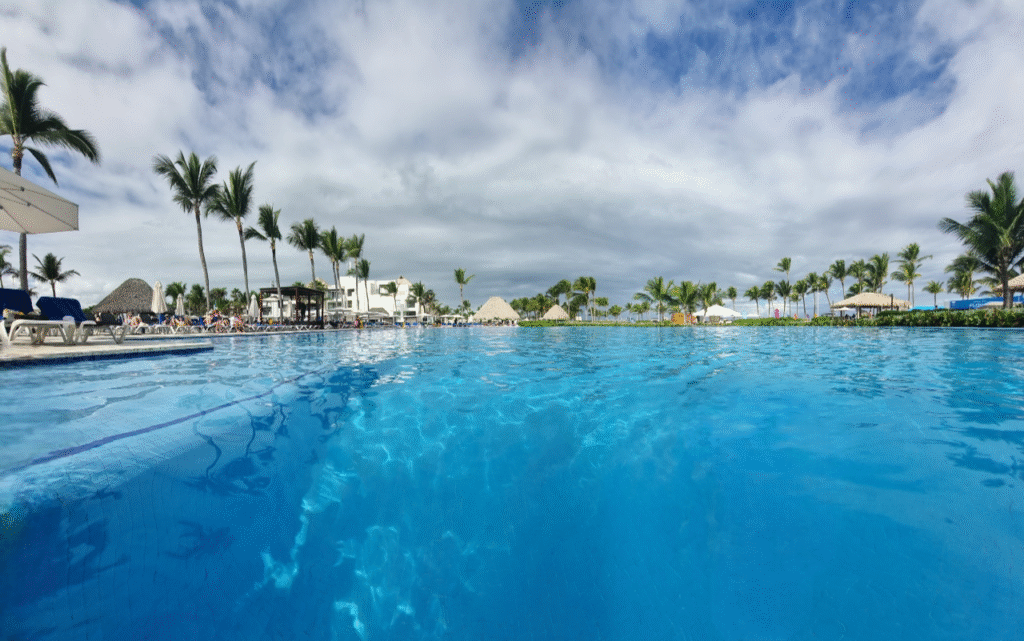RCI or Interval International—Which Saves Families More Money?
If you’ve ever stared at your timeshare exchange options and wondered, Which is better, RCI or Interval International? — you’re not alone. Couples and families reach out to me all the time, frustrated by the fine print, hidden fees, and endless scrolling that comes with choosing the right exchange network. I’ve personally used both RCI and Interval International for family getaways and romantic escapes, and in this post, I’ll break down the real differences. More importantly, I’ll show you how to hack each program to squeeze out maximum value—so you can enjoy affordable luxury vacations without the stress.
Understanding the Basics: RCI vs Interval International
What Is RCI?
RCI (Resort Condominiums International) is the world’s largest vacation exchange network, boasting over 4,200 affiliated resorts across 110+ countries. If your timeshare is affiliated with RCI, you can swap your week or points for stays at these partner resorts. It’s especially popular in North America, the Caribbean, and Europe.
Pros of RCI:
- Massive global inventory (more choices).
- Often includes high-demand resorts like Hard Rock Punta Cana.
- Flexible points-based system for stretching value.
Cons of RCI:
- Exchange fees can add up.
- Quality can vary across properties.
- You’ll need to plan well in advance for peak seasons.
What Is Interval International?
Interval International (II) is RCI’s main competitor, with a smaller but more curated collection of around 3,200 resorts. Many high-end brands—Marriott, Hyatt, and Vistana—are exclusively affiliated with Interval, which makes it especially appealing for families seeking consistency in quality.
Pros of Interval International:
- Access to premium resort brands (think Marriott Vacation Club).
- Sleeker booking interface.
- “Getaways” feature lets you book without depositing points.
Cons of Interval International:
- Smaller inventory compared to RCI.
- Some high-demand destinations are harder to access.
- Membership fees can feel high if you don’t maximize usage.
Which Is Better, RCI vs Interval International, for Families?
Comparing Cost and Value
For families, value is more than just a low exchange fee—it’s about space, convenience, and access to family-friendly amenities.
- RCI: Often shines with its wide reach and deals in Mexico and the Caribbean. I’ve exchanged RCI points for a full week in an all-inclusive resort for less than the price of a long weekend at a domestic hotel. But you need to monitor fees (exchange + all-inclusive mandatory fees).
- Interval International: Families who prefer Marriott or Hyatt consistency might find II better. You’ll pay a bit more up front, but you’re almost guaranteed a reliable family experience—kitchenettes, larger suites, and resorts built with kids in mind.
Availability During School Breaks
If you’re traveling with school-age kids, timing matters.
- RCI: Better chance of finding options if you start searching 10-12 months ahead.
- Interval: More difficult during peak breaks unless you’re flexible with destinations.

Insider Hacks for Couples (and Families)
1. Deposit Early and Search Often
Both RCI and Interval reward early planners. Deposit your week as soon as possible and set up ongoing searches—this increases your chances of snagging high-demand weeks in places like Hawaii, Orlando, or Greece.
2. Look for “Last Call” and “Getaways”
- RCI Last Call: Discounted weeks for as low as $299 if you can travel within 45 days. Perfect for couples who can sneak away.
- Interval Getaways: No exchange required—you pay cash but often at rates cheaper than hotels. I once booked a beachfront Marriott villa for under $400 for the week.
3. Families: Stretch Your Space
One of the biggest advantages of exchanging through RCI or Interval International is the chance to stay in multi-bedroom villas or suites instead of cramming into a single hotel room. For families, this is a game-changer—you’re not only getting privacy but also saving money on meals and logistics.
Here’s how to stretch your space, especially in all-inclusive resorts:
- Book Multi-Bedroom Units: Many all-inclusive resorts in Mexico and the Caribbean (often found on RCI) offer 1–2 bedroom suites or even adjoining condos. This means kids can have their own room (and bedtime), while parents enjoy a separate living space. The price difference in points is often minimal compared to booking two separate hotel rooms.
- Leverage Kitchens and Kitchenettes: Even at all-inclusives, a kitchenette can come in handy. Families often use it for quick breakfasts, baby formula prep, or late-night snacks—cutting down on constant trips to the buffet and giving you flexibility.
- Use Resort Credit Wisely: Many all-inclusives provide resort credits (for spas, excursions, or premium dining). Stretch your family’s stay by booking one larger unit with credits included—then split those perks strategically. Parents can enjoy a spa day while kids join a supervised activity.
- Take Advantage of Laundry Facilities: Resorts with in-unit washers and dryers let you pack lighter. This not only saves baggage fees but also keeps family travel more organized—especially with young children.
- Maximize Occupancy Rules: All-inclusive pricing can be tricky since you often pay per person. The hack? Look for resorts where kids under a certain age stay or eat free (common in RCI exchanges). Pair this with a 2-bedroom unit, and suddenly the math swings in your favor.
Real-World Example:
When we used RCI to book the Hard Rock Hotel & Casino Punta Cana, we were able to secure 2 spacious bedroom suites for the same point cost as a smaller room at a different resort. With the all-inclusive plan, our kids ate free, and we stretched the included resort credits on spa treatments.
👉 The bottom line: a well-chosen timeshare exchange at an all-inclusive resort can feel like renting a luxury condo with hotel-level perks. Families save on space, food, and convenience while enjoying the kind of breathing room most hotels simply can’t offer.
4. Couples: Romantic Upgrades
If you’re traveling without kids, both RCI and Interval often have boutique or adults-only properties. Pro tip: Call the resort after booking and ask about complimentary upgrades or amenities—they’re surprisingly generous, especially in shoulder season.
Frequently Asked Questions (FAQ)
Q1: Which is better, RCI vs Interval International, if I want luxury brands?
If you want Marriott, Hyatt, or Vistana, Interval International is better. For sheer variety and all-inclusives, RCI wins.
Q2: Can I use both RCI and Interval International?
Yes, but only if your timeshare resort is affiliated with both—or if you own multiple timeshares tied to each system.
Q3: Are there hidden fees in RCI or Interval International?
Yes. Both charge exchange fees, and many RCI all-inclusive resorts add mandatory meal plans. Always read the fine print before confirming.
Q4: Which is better for families traveling during school vacations?
RCI typically offers more options if you plan early. Interval has less inventory but higher consistency in quality.
Conclusion
So, which is better, RCI vs Interval International? The answer depends on your family’s priorities: choose RCI for flexibility and reach, and Interval International for reliability and luxury-brand resorts. Either way, you’ll need to play smart—deposit early, use Getaways or Last Call, and don’t be afraid to ask for upgrades.
Affordable luxury travel is all about knowing these hidden levers, and now you’ve got the inside scoop.
👉 Subscribe to our newsletter for the best travel hacks—so your next family getaway feels five-star without the five-star price tag.




Pingback: Stop Losing Value: The RCI Elite Rewards Credit Card Review & 5X Points Hack for US Family Resorts - globbetrotterhacks.com